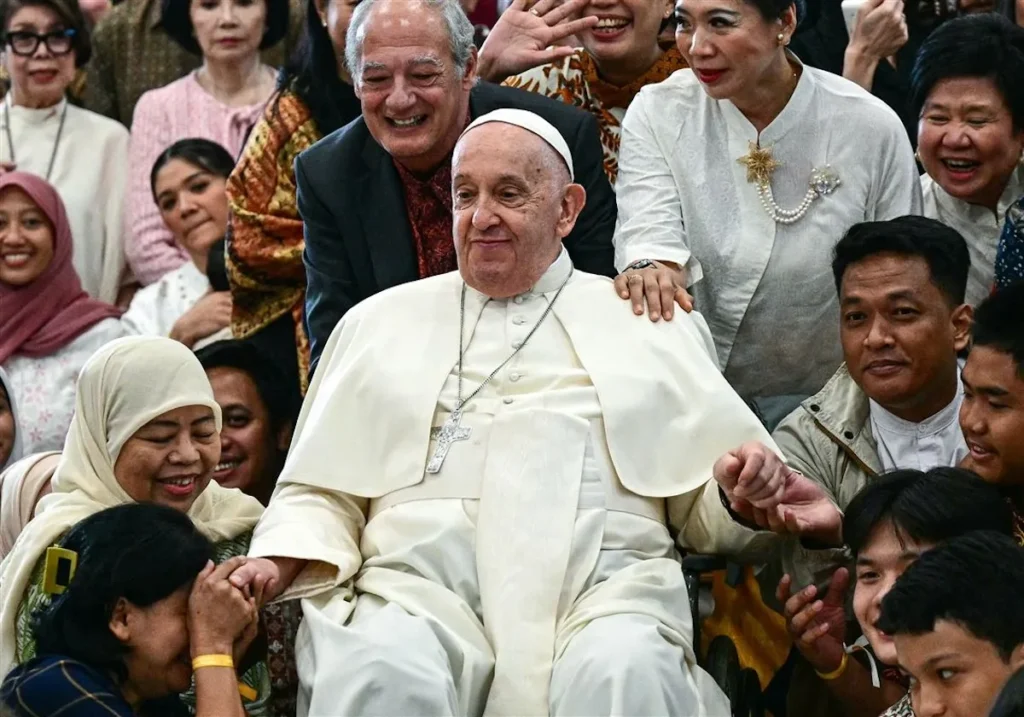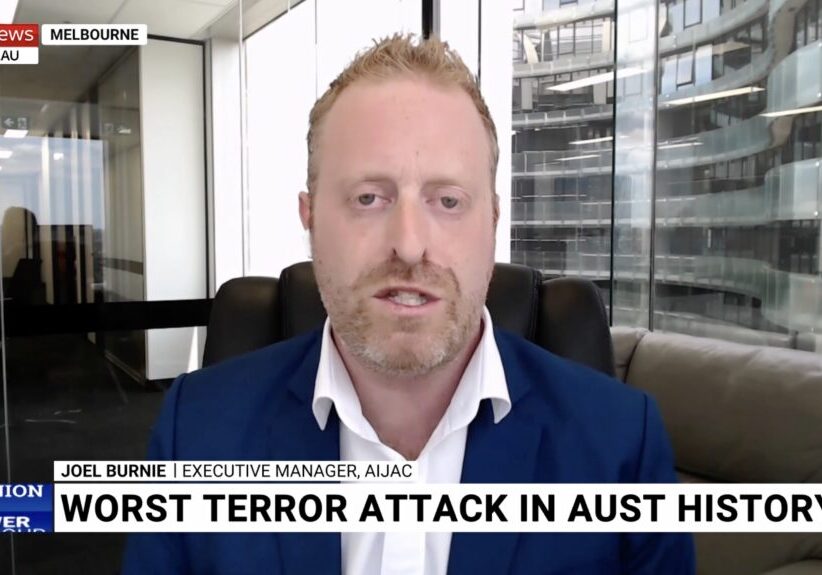Australia/Israel Review
Asia Watch: Changing tides
Sep 23, 2024 | Michael Shannon

Pope Francis was warmly welcomed in his early September visit to Indonesia, a (80%) Muslim majority nation where religious harmony has long remained more an aspiration than a settled reality; and although the tide of overt Islamist extremism has receded in recent years, the well-springs of another surge remain in place.
In an address to some 300 politicians and religious leaders at Jakarta’s Merdeka Presidential Palace, the 87-year-old Pope said the Catholic Church would increase its efforts toward inter-religious dialogue in hopes of helping tamp down extremism, which he said distorted people’s religious beliefs through “deception and violence”.
Indonesia’s two largest Islamic organisations, Muhammadiyah and Nahdlatul Ulama – with a combined membership of more than 150 million – expressed hope that the papal visit would promote interfaith harmony, while media coverage – considering that less than 3% of the 280 million population is Catholic – was extensive, featuring nearly all of the Pope’s public events. Even a government request that TV channels not interrupt the papal mass by playing the usual evening call to prayer – replacing it instead with a text notice on the screen – failed to provoke much controversy.
The change in atmospherics is striking compared to several years ago, when confected outrage to perceived slights against Islam derailed the political career of the Chinese Christian governor of Jakarta, Basuki “Ahok” Purnama, amidst mass street protests in 2016-17; the self-styled Islamic vigilantes of the Islamic Defenders Front (FPI) would harass and vandalise with impunity; and groups like Hizb ut-Tahrir Indonesia agitated in large numbers for the imposition of sharia law.
It was at this juncture that President Joko Widodo, known as Jokowi, pushed back. Long needled by rivals and opponents with accusations that he is insufficiently Islamic, Jokowi responded not with performative acts of piety but by banning Hizb ut-Tahrir Indonesia and the FPI on the grounds that their disruptive, anti-democratic ideology is fundamentally in conflict with Indonesia’s founding pluralist credo of Pancasila.
While some expressed misgivings about encroachments upon civil liberties, these moves helped shift momentum as divisive religious politics fell out of favour – Jokowi comfortably secured re-election in 2019 and his erstwhile rival Prabowo was elected this year on an unambiguously nationalist platform.
Another marker of change came this year with the public disbanding of Jemaah Islamiyah (JI). The announcement came in a video released on June 30 featuring 16 senior JI figures who stated that the group would be formally dissolved. They also pledged their allegiance to the Indonesian state.
In a prepared statement, Abu Rusdan, a senior leader of the group, said that JI now stands “ready to actively contribute to Indonesia’s progress and dignity.”
JI was established by Indonesian clerics Abu Bakar Bashir and Abdullah Sungkar in the 1990s with the explicit aim of creating an Islamic state throughout Southeast Asia. It was most active in the early to mid-2000s, when the group, which had received training and funding in Afghanistan, committed several deadly attacks in Indonesia including the 2002 Bali Bombing which killed 202 people.
The Indonesian government cracked down on JI after the first Bali bombings, arresting and imprisoning many of its leaders. The group was officially banned in 2008, but it continued to operate underground, recruiting members, raising funds and conducting military training. Its last violent attack in Indonesia occurred in 2009.
More recently, Indonesia has faced threats from other extremist groups, including those affiliated with the Islamic State group such as Jamaah Ansharut Daulah (JAD). There has also been a trend of smaller-scale attacks, often targeting security personnel.
While the announcement of JI’s disbandment presents as a positive development, a closer look reveals a more complex reality. Questions remain about the future of its network of Islamic boarding schools – estimated to be around 100 across Indonesia – which have long served as ideological incubators, teaching a literalist, puritan version of Islam, while also identifying potential recruits for future roles within the organisation.
In their declaration, JI leaders pledged to overhaul the syllabus of the group’s schools to align with mainstream Islamic teachings, although some observers describe this as a strategic concession after years of pressure from Indonesian authorities, who have arrested dozens of JI members in recent years.
Sidney Jones, a senior adviser to the Jakarta-based Institute for Policy Analysis of Conflict, described the disbandment as “the culmination of a long move toward ending JI’s existence as a covert organisation and operating openly in the interests of Islamic outreach and education.”
However, she also acknowledged the potential for splinter factions. “Surely some in JI will see it as a betrayal,” she told BenarNews.
The history of extremist groups in Indonesia is marked by transformation and reemergence. Even JI founder Abu Bakar Bashir defected a decade ago from being pro-al-Qaeda to being pro-Islamic State, along with large numbers of acolytes. As such, many younger militants who are prepared to use violence are likely to defect to other groups.






